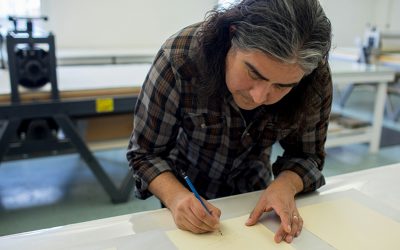Musicology Colloquium Series
Sponsored by The University of New Mexico Department of Music and the Latin American and Iberian Institute
Thursday April 18, 2:00-3:30pm
LAII Conference Room
Talk Description:
Argentine soccer fandom involves a nuanced set of bodily practices and a vast repertoire of chants based on radio hits and broadcast advertisement. This talk demonstrates how chanting brings together sounds and bodies in an affective public practice that incites intense feelings of social cohesion and belonging meaningful beyond what is being said with words.
 Biography:
Biography:
Eduardo Herrera is Assistant Professor at Rutgers University specialized in musical traditions from Latin America, the Caribbean, and Latinx peoples in the United States from historical and ethnographic perspectives. His book, Elite Art Worlds: Philanthropy, Latin Americanism, and Avant-Garde Music (Oxford University Press, forthcoming 2019) explores the history of the Centro Latinoamericano de Altos Estudios Musicales. Herrera is co-editor of Experimentalisms in Practice: Music Perspectives from Latin America (Oxford University Press, 2018). Herrera’s second book project, titled Soccer Chants: The Sonic Potentials of Participatory Sounding- and Moving-in-Synchrony studies collective chanting in Argentine soccer stadiums.
Jacobsen signs pre-completion contract for “The Creative Ethnographer’s Notebook”
Jacobsen signs pre-completion contract for "The Creative Ethnographer's Notebook" (co-authored with Melisa Cahnmann-Taylor) a book for artists, ethnographers and qualitative researchers. How and when do anthropologists, educators, sociologists and other social...
Pulitzer winning alumnus Raven Chacon to debut new composition, perform
Pulitzer winning alumnus Raven Chacon to debut new composition, perform Tickets available for performances in Santa Fe, Albuquerque By Mary Beth King August 11, 2022 Pulitzer Prize winning Diné composer and sound artist Raven Chacon, who earned his Bachelor of Arts...
The American Prize in Vocal Performance—Women in Art Song and Oratorio, 2022 Winner
The American Prize National Nonprofit Competitions in the Performing Arts, David (Volosin) Katz, founder and chief judge, is honored to announce the winners, runners-up, and honorable mentions of The American Prize in Vocal Performance—women in art song and oratorio,...



